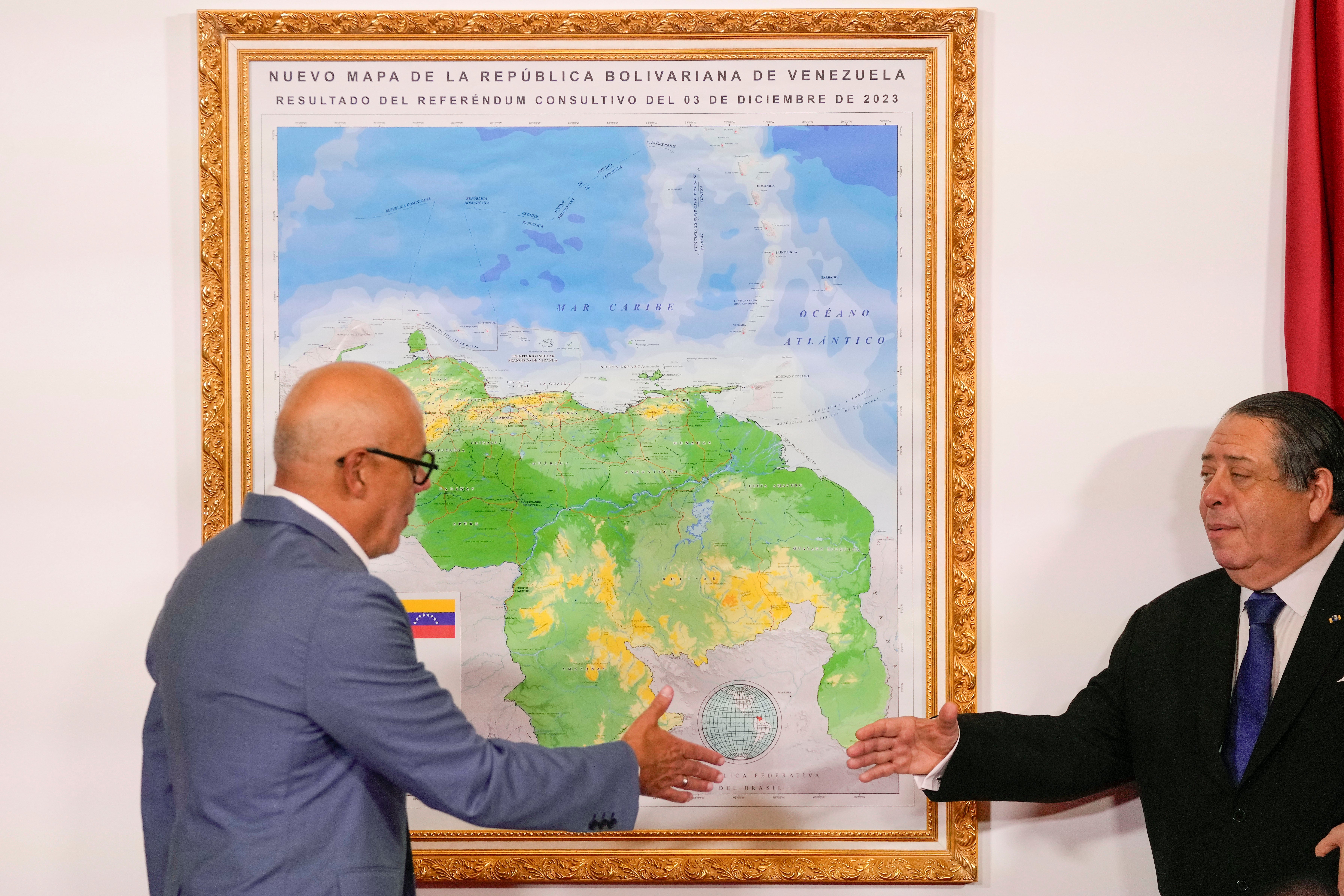Leaders of Guyana and Venezuela to meet this week as region worries over their territorial dispute
The leaders of Guyana and Venezuela will meet this week to address an escalating dispute over the Essequibo region that is rich in oil and minerals

Your support helps us to tell the story
From reproductive rights to climate change to Big Tech, The Independent is on the ground when the story is developing. Whether it's investigating the financials of Elon Musk's pro-Trump PAC or producing our latest documentary, 'The A Word', which shines a light on the American women fighting for reproductive rights, we know how important it is to parse out the facts from the messaging.
At such a critical moment in US history, we need reporters on the ground. Your donation allows us to keep sending journalists to speak to both sides of the story.
The Independent is trusted by Americans across the entire political spectrum. And unlike many other quality news outlets, we choose not to lock Americans out of our reporting and analysis with paywalls. We believe quality journalism should be available to everyone, paid for by those who can afford it.
Your support makes all the difference.As the leaders of Guyana and Venezuela prepare to meet this week to address an escalating dispute over a region rich in oil and minerals, Guyana's president said he is coming with “goodwill’ but insisted that his country be respected and the case be heard at the International Court of Justice.
President Irfaan Ali spoke to reporters late Sunday, while his security detail wore shirts reading “ESSEQUIBO BELONGS TO GUYANA.”
The dispute over Essequibo, which represents two-thirds of Guyana and borders Venezuela, worsened after Venezuela held a referendum earlier this month on whether to claim sovereignty over the region located near massive oil deposits.
Venezuela maintains that Essequibo was within its boundaries during the Spanish colonial period, and it rejects the border drawn by international arbitrators in 1899 when Guyana was under British rule.
Guyana's president is scheduled to meet Thursday with Venezuelan President Nicolás Maduro behind closed doors on the eastern Caribbean island of St. Vincent. Invited to the talks are leaders including Brazilian President Inacio Lula da Silva.
“We are very confident that good sense will prevail,” Ali said. “We want peace, but we must be respected.”
He stressed that Guyana will not negotiate with Venezuela, insisting that the case be heard by the International Court of Justice in the Netherlands as planned.
“The world is behind us,” he said.
When asked if the U.S. has committed any military aid, Ali said he signed an advanced defense agreement with the U.S. to ensure that “major training programs and exercises” will continue.
“We also are talking to many other partners,” he said, without details. “We don’t want any conflict. We don’t want any war.”
In a video posted Sunday on social media, Venezuelan Foreign Minister Yvan Gil said he met with his counterpart in Guyana and noted, “We are always in favor of dialogue between both countries to solve this controversy.”
Gil said he also has met with the presidents of CELAC — the Community of Latin American and Caribbean States — and Caricom, a Caribbean trade bloc.
In a statement Saturday, Ralph Gonsalves, prime minister of St. Vincent and the Grenadines, said the leaderships of CELAC and Caricom believe there is “the urgent need to de-escalate the conflict and institute an appropriate dialogue."
Gonsalves noted that Ali agreed to discuss the controversy with Maduro despite Guyana’s Parliament unanimously instructing him not to do it.
“Let us all resolve to make this historic gathering a successful one,” Gonsalves said. “So much is at stake for our Caribbean and Latin American civilization.”